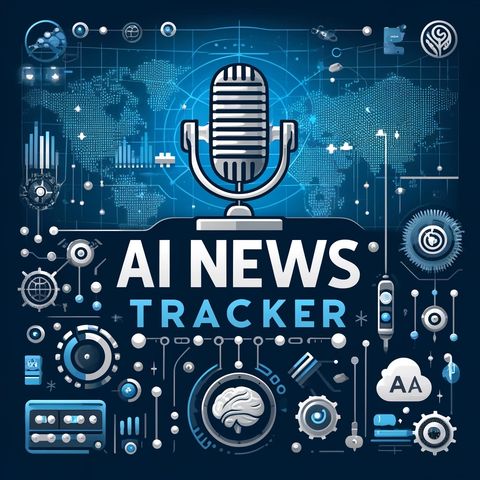Generative AI Revolutionizes Industries - From Art to Music and Beyond

Sign up for free
Listen to this episode and many more. Enjoy the best podcasts on Spreaker!
Download and listen anywhere
Download your favorite episodes and enjoy them, wherever you are! Sign up or log in now to access offline listening.
Generative AI Revolutionizes Industries - From Art to Music and Beyond
This is an automatically generated transcript. Please note that complete accuracy is not guaranteed.
Description
Hello everyone, today I'd like to discuss AI, specifically generative AI and how it is revolutionising our world. Generative AI, a subset of artificial intelligence, has the ability to create...
show moreGenerative AI, a subset of artificial intelligence, has the ability to create content from scratch, such as images, text, or music. It is an exciting development that provides groundbreaking opportunities for various industries - from tech giants like Google to small startups on the forefront of innovation.
You may be familiar with DeepArt, an application that uses generative AI to transform your photos into works of art. It utilizes an AI technique called neural style transfer, pioneered by researchers at the University of Tubingen. The technology analyzes the style of one image and the content of another to produce unique and creative pieces.
Additionally, companies like OpenAI have made major strides in the field, with one of their recent projects gaining a lot of attention: GPT-3. This AI model can generate human-like text, turn data into poetry, write programming code, and much more. Its potential for real-world applications is vast, and we're only beginning to scratch the surface of what’s possible.
In the music industry, tools like AIVA (Artificial Intelligence Virtual Artist) are reshaping how music is composed. Utilizing deep learning algorithms, AIVA can write music for films, games, and even orchestras. What was once a task only achievable by human composers, can now be carried out effectively by AI.
But blurring the lines between AI-generated and human-made content isn't all down to play. In the scientific community, models like DeepMind's AlphaFold are being used to predict protein structures with incredible accuracy. This could revolutionize our understanding of diseases, and open up new avenues for drug discovery.
While these advancements are exciting, the rise of generative AI also prompts important ethical considerations. For example, the potential misuse of deepfakes, generated by AI, for misinformation is a growing concern. Additionally, creative domains such as art and music, once exclusive to humans, must now reevaluate the conception of originality.
However, as long as we as a society work together to secure ethical guidelines and policies for AI use, I believe there's more to be excited about than concerned.
My hope is that rather than replacing us, AI will enable us to enhance our human capacities. We'll be freed from many tedious tasks, and given more space for creativity, nuanced decision-making, and meaningful interaction. In the words of Klaus Schwab, founder of the World Economic Forum, AI will be our tool, not our master.
I urge everyone to continue learning about AI technology as it evolves because as it stands, the future with AI looks set to be creative, efficient, and boundary-pushing.
That wraps up today's discussion. I look forward to delving further into this topic with you tomorrow.
Information
| Author | QP-4 |
| Organization | William Corbin |
| Website | - |
| Tags |
Copyright 2024 - Spreaker Inc. an iHeartMedia Company
